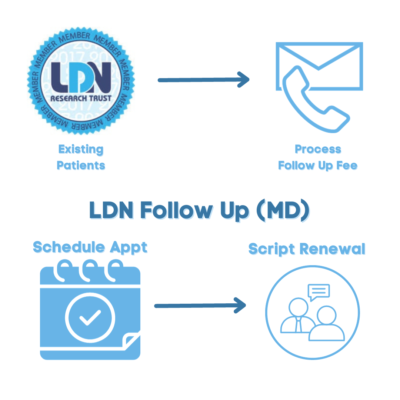IBS is a commonly occurring collection of symptoms diagnosed in the world of gastroenterology. It is the most common GI disorder with worldwide prevalence rates ranging from 10-15%. There are between 2.4 and 3.5 million physician visits annually for IBS in the US. Recent research has shown that up to 84% of those with an IBS diagnosis test positive for a Small Intestinal Bacterial Overgrowth breath test.
Breath tests for Small Intestinal Bacterial Overgrowth can be very time consuming for patients, as well as inaccurate, due to many factors.
IBSSureTM is a simple blood test that detects two antibodies which are indicative of bacterial-pathogen-induced motility dysfunction, which can lead to increased incidence of SIBO.
CdtB toxins (cytolethal distending toxin B) are released by gastroenteritis-causing bacteria, against which antibodies are produced by the immune system. These antibodies interact with a protein, vinculin, present in the intestinal cell-lining matrix. This interaction compromises and impairs digestive motility. This pathological breakdown of the gastrointestinal motility complex is foundational to chronic SIBO development and recurrence and has been well-studied and documented.
What markers are measured?
- Anti-CdtB IgG and IgA
- Anti-vinculin IgG and IgA
WHAT THE HECK IS SIBO (and how do I know if I have it?)
- Small intestinal bacterial overgrowth (SIBO) is defined as the presence of excessive bacteria in the small intestine
- SIBO is frequently implicated as the cause of chronic diarrhea and malabsorption in addition to intestinal hyper-permeability
- Patients with SIBO may also suffer from unintentional weight loss, nutritional deficiencies, and osteoporosis
- A common misconception is that SIBO affects only a limited number of patients, such as those with an anatomic abnormality of the upper gastrointestinal (GI) tract or those with a motility disorder
- SIBO may be more prevalent than previously thought. This apparent increase in prevalence may have occurred, in part, because readily available diagnostic tests have improved our ability to diagnose SIBO
Symptoms associated with SIBO
- Abdominal pain/discomfort
- Bloating
- Abdominal distension
- Diarrhea
- Excessive gas
- Fatigue, especially after meals
- Brain fog
- Vitamin and mineral deficiencies
- Worsened symptoms when consuming carbohydrates and fibrous vegetables
- Unexplained weight loss
Why not just a methane breath test? Well sadly there is only a 65% correlation vs a 85% correlation with this particular test.
If this test is negative but I still have the symptoms, is it possible that I might still have SIBO?
IBSSureTM measures two blood-based antibodies that can be used in the diagnostic workup of IBS, and to rule out IBD. These antibodies can also identify past exposure to bacterial toxin (food poisoning), and autoimmunity of the intestinal motility system (pacemaker cells in the GI tract). Finally, anti-CdtB antibody has been correlated with positive SIBO diagnosis. It is still possible to have the signs and symptoms of SIBO without having a positive result on this test.
If this test is capturing an infectious gastroenteritis event, how many years back would the event be accounted for?
A systematic review and meta-analysis found that more than 10% of individuals with infectious enteritis later develop IBS. The overall risk of developing IBS is 4.2 times higher in individuals with a history of infectious enteritis versus individuals without a history of infectious enteritis. The prevalence of IBS at 12 months after infectious enteritis was 10.1% and at more than 12 months after infectious enteritis was 14.5%. Studies have examined post-infectious IBS onset within 12 months, within 13-59 months, and greater than 60 months (5 years) after the infectious event. Prevalence of post-infectious IBS depends upon the pathogen(s) involved, geographic location, clinically suspected or laboratory-proven enteritis, time of medical assessment following the infectious enteritis, and the criteria used to define IBS. Some studies report a decline in prevalence of IBS over time since the infectious event, whereas others report an increase in prevalence of IBS over time since the infectious event. It is unknown how long CdtB antibodies and vinculin antibodies will persist after an infectious enteritis.
Does positive anti-vinculin indicate an autoimmune condition?
Yes, because the body is producing antibodies to the vinculin protein located in the migrating motor complex (MMC), therefore, antibodies to its own tissues.
What does IBS-M mean?
IBS-M means Irritable Bowel Syndrome – Mixed, which means the patient experiences a combination of constipation and diarrhea.
I was told that this is not a SIBO test. What is IBSSure testing?
IBSSureTM is a simple, gut-motility test that can be used to identify irritable bowel syndrome (IBS), and to rule out inflammatory bowel disease (IBD). We identify two markers: CdtB (Cytolethal Distending Toxin B) and anti-vinculin, which confirms dysmotility at the junction of the large and small intestine; this could present itself symptomatically as diarrhea or constipation. The importance of understanding the migrating motor complex (MMC) can help alleviate your patient’s symptoms. Should both biomarkers be elevated, there is an 89% correlation to SIBO. Simple intervention of a prokinetic supplementation and lifestyle changes that will stimulate the MMC could provide your patient with symptomatic alleviation.
So let’s take the next step and get you tested from the comfort of your own home.






I would like further information on this.
The test and if positive then what’s the treatment. Costs? Success rate?
Let’s get you set with a courtesy call! The best way to get your questions answered (and the others that will likely also come up) is to schedule a quick (no charge) call with Holly.The treatment depends on the results, each protocol is customized by the results of the test. Cost is the lab fee at the time of testing, currently $180 USD + cost to ship the kit. You will then need a diagnostic review with Holly to discuss the results as well as receive your protocol/treatment plan ($175 CAD). As for success rate – that all depends on you. If you stick to it and do what is needed then you are going to get good results.